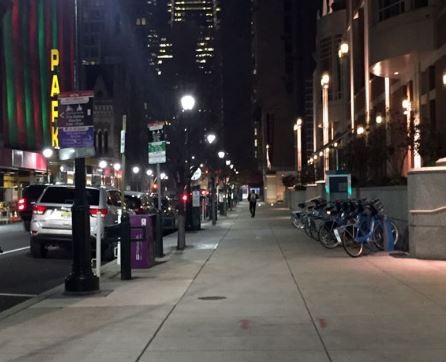Random Spotter was going to stay away from the Black Lives Matter topic because I believe a lot of good can come from the movement. However, I think it’s broken in its current form.
A so-called analysis by Vox’s Dara Lind that included 2012 FBI data, in which she stated that “Black people accounted for 31 percent of police killing victims in 2012, even though they made up just 13 percent of the US population” is just the kind of manipulative, crap data that makes people believe in racial conspiracies and leaves the Black Lives Matter movement in a single issue universe. Let me review some truth, and then I’ll tell you what I believe Black Lives Matter can do for humanity.
The primary reason that a disproportionate percentage of arrests and deaths occur in the black community is that crime is rampant in the community. Compare Ms. Lind’s “13% of the population is black” statement with FBI arrest statistics for the same year. 28% of all arrests were of African-Americans, and it’s much higher for violent crimes. In fact, of those under 18 charged with murder, 52% were black. I know all arrests are not just, and all convictions are not fair. But, it’s difficult for me to imagine a huge conspiracy that invalidates a majority of arrests and conviction for any segment of the population.
And, if we review 2012 murders – we see that 2,412 of the 2,648 black deaths were caused by a black assailant. That’s 91% of the murder deaths in the black community. Most estimates of black deaths at the hands of police in 2012 list the figure at about 260. Of those, we would need to exclude the justified killings of offenders who threatened the lives of police and others. I have no legitimate estimate, but let’s guess that 30% of these were improper police killings. This is a pure guess, and I think it’s high, but I don’t want to minimize the unknown figures at all. So then, 78 police killings would have been unjustified, and of course, the entire judicial system should slam the killers down.
The sadder figure is the revelation that we could eliminate ALL improper police deaths, and we’d still see over 30 times as many deaths of blacks at the hands of other blacks. Unfortunately, those numbers are higher in 2016. That’s my beef with Black Lives Matter: it focuses exclusively on police killings, and that’s not the bigger problem.
I can actually see this movement evolving, as have the NAACP and National Urban League, to promote the importance of a multitude of community issues. It could, as have other organizations before it, promote parental issues and economic and career opportunities for black Americans so that the apparent dynamic of despair will change. We can’t solve this with affirmative action or more programs; we need to build a social message of hope for every man, woman and child. Black Lives Matter can and should continue to champion causes of racial justice, but not from a perch of accusation that targets emotional responses to a symptom of the disease. Eliminating every police killing will not cure black crime and violence. Only a hard, honest look can bring healing. If Black Lives Matter focuses on improving visibility of the problems in the black community and champions a mission that solves what ails communities and drives children to crime, more black Americans will be rightly envision a good and safe life for themselves and their families. And the vision will become a reality.
I’m with the Black Lives Matter I see down the road, but I’m very opposed to the movement that fixates on a partly-fabricated police brutality agenda. The facts just don’t support it. Let’s expand the dialogue and invite all Americans to participate in the solutions that a thoughtful and positive Black Lives Matter can bring.
